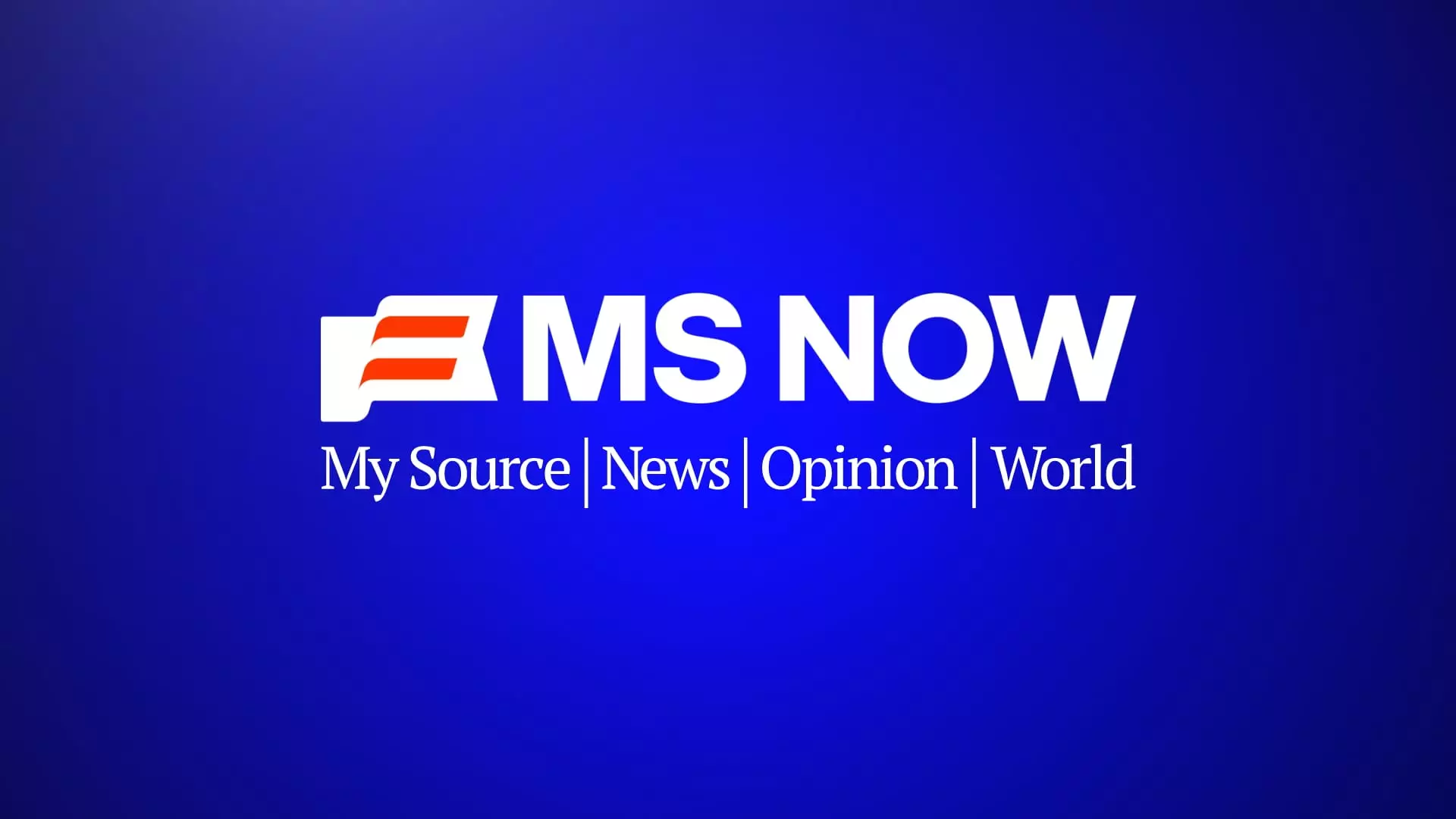In an era where media outlets are increasingly defined by their ideological pull, MSNBC’s decision to overhaul its branding signals more than a superficial change—it reveals a calculated move to reposition itself amid a complex political landscape. The renaming to “My Source News Opinion World” (MS Now) and the abandonment of the iconic peacock symbol suggests a deliberate effort to craft a more independent, perhaps more centrist or center-right identity, aligning closer to a conservative-leaning audience that feels alienated by traditional liberal media narratives. Such a move isn’t just cosmetic; it signifies a strategic assertion of autonomy from NBCUniversal, aiming to carve out a distinct space where the network can cater to a broader, perhaps more moderate demographic, free from the baggage of old associations.
The rebranding process underscores a vital recognition: in the current polarized environment, name recognition alone no longer suffices for influence. Instead, it demands a clear association with a particular worldview—one that balances the desire for journalistic credibility with an ideological positioning that resonates with a conservative-leaning segment stuck between left-leaning mainstream media and traditional right-wing outlets. By introducing a new brand, MSNBC is setting the stage for a more targeted approach, positioning itself as an independent voice—less beholden to parent company NBCUniversal—and more aligned with conservative or center-right values.
Implications for Media Independence and Audience Loyalty
The strategic move to establish a separate identity is not merely about marketing; it’s emblematic of a broader attempt to gain ideological independence. The network’s substantial hiring spree—bringing in around 40 journalists from rival outlets like CNN and Bloomberg—further signals a desire to evolve into a distinct entity, capable of shaping its own narrative without the interference of NBC News’s more liberal outlook. With the launch of its first Washington D.C. bureau, MSNBC aims to establish a serious, credible presence that challenges both left and right ideological monopolies.
Such independence may foster increased trust among a demographic that feels increasingly disenfranchised or skeptical of mainstream media. If MSNBC can successfully position itself as a balanced force—embracing free-market principles, national security, and traditional values—while avoiding the stereotypes associated with left-leaning outlets, it could secure a sizable portion of the political middle ground. However, the question remains: can a rebrand truly shift perceptions when historical biases and consumer habits are deeply ingrained? The answer hinges on whether the network’s content retains credibility and whether its journalists can genuinely embody the new brand promise of independence.
The Political Landscape and the Future of Cable News
This rebranding does not occur in a vacuum; it is a direct response to the shifting dynamics within the American political spectrum. With viewers craving nuanced perspectives over tribal echo chambers, MSNBC’s evolution might be an astute move to avoid obsolescence. In a landscape dominated by polarized outlets, a center-right leaning MSNBC could serve as a bridge—appealing to voters who are tired of ideologically rigid adversaries on both ends.
The move also indicates that Versant, the parent company, recognizes the importance of brand differentiation in a competitive environment increasingly leaning toward digital and niche platforms. By dropping the iconic peacock logo from all its brands, Versant sends a clear message: traditional corporate branding is no longer enough; what matters is ideological clarity and independent identity. The plan to spin off as a publicly traded company indicates an ambition to operate more like a private enterprise driven by market principles—an approach that aligns with the values of individualism, entrepreneurship, and free enterprise.
In essence, MSNBC’s transformation could symbolize a broader shift within American media—one where the lines between journalism and advocacy are blurring, and brands are being weaponized for influence. Whether this rebranding revitalizes MSNBC’s relevance or dilutes its credibility remains to be seen, but one thing is unmistakably clear: the battle for influence in the media sphere is shifting, and branding remains a critical front in that war.

